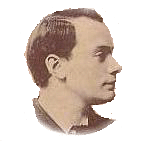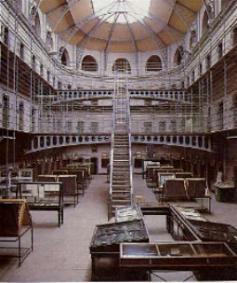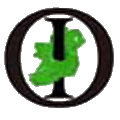Pearse was born on November
10, 1879 in 27 Pearse Street Dublin, originally called Great Brunswick Street,
his mother was Irish, his father an English sculptor. He took a
degree in law at the Royal University and King's Inns (though he
never practiced) later he took a degree in modern languages from
University College, Dublin (1901).
in 27 Pearse Street Dublin, originally called Great Brunswick Street,
his mother was Irish, his father an English sculptor. He took a
degree in law at the Royal University and King's Inns (though he
never practiced) later he took a degree in modern languages from
University College, Dublin (1901).
Pearse was passionate about the Irish language,
literature and culture, in 1899 he joined the Gaelic League. An
Claidheamh Solais (“The Sword of Light”) he soon rose
to be leader, The League published a weekly journal in which was
published many of his essays, short stories and pamphlets, he became
editor of the journal in 1903. The journal and Pearse in particular
played a large part in the development of modern Irish literature.
St Enda's College in Rathmines, County Dublin
was founded by Pearse his brother William and Thomas MacDonagh in
1908. The college was dedicated to education along the ideals set
out by the League
In 1910 Pearse built a cottage on a hill
overlooking a small Lough in County Galway. It was used by him for
holidays and to improve his Irish The cottage is open to the public.
In November 1913 he joined the leadership
of the newly formed Irish Volunteers, a militia group founded in
opposition to the Protestant Ulster Volunteer Force.
Pearse's views had become increasingly radical,
in July 1914 the joined the supreme council of the Irish Republican
Brotherhood (IRB). With the war raging in Europe the organization
perceived an opportunity to force political change in Ireland. Pearse
and the leaders planned an uprising to begin on Easter Monday, April
24, 1916. Pearse led the army to the General Post Office building
in Sackville Street (now O'Connell Street), Dublin, and read aloud
a proclamation announcing the birth of a new Irish republic, this
document was signed by Pearse and six others. |

 in 27 Pearse Street Dublin, originally called Great Brunswick Street,
his mother was Irish, his father an English sculptor. He took a
degree in law at the Royal University and King's Inns (though he
never practiced) later he took a degree in modern languages from
University College, Dublin (1901).
in 27 Pearse Street Dublin, originally called Great Brunswick Street,
his mother was Irish, his father an English sculptor. He took a
degree in law at the Royal University and King's Inns (though he
never practiced) later he took a degree in modern languages from
University College, Dublin (1901).